Dr. J.T. Kent’s Repertory of Homeopathic Materia Medica is a useful resource for homeopathic practitioners when seeking the right remedy for a patient’s specific symptoms. This repertory contains mind rubrics, which pertain to emotional and mental states. Among these mind rubrics, I will highlight a selection from the “I” series.
Each rubric will be explained in simple terms and accompanied by a graphical representation to aid comprehension.
Additionally, I will provide the most indicated remedies for each rubric to offer treatment suggestions.
Table of Contents
ToggleIDEAS
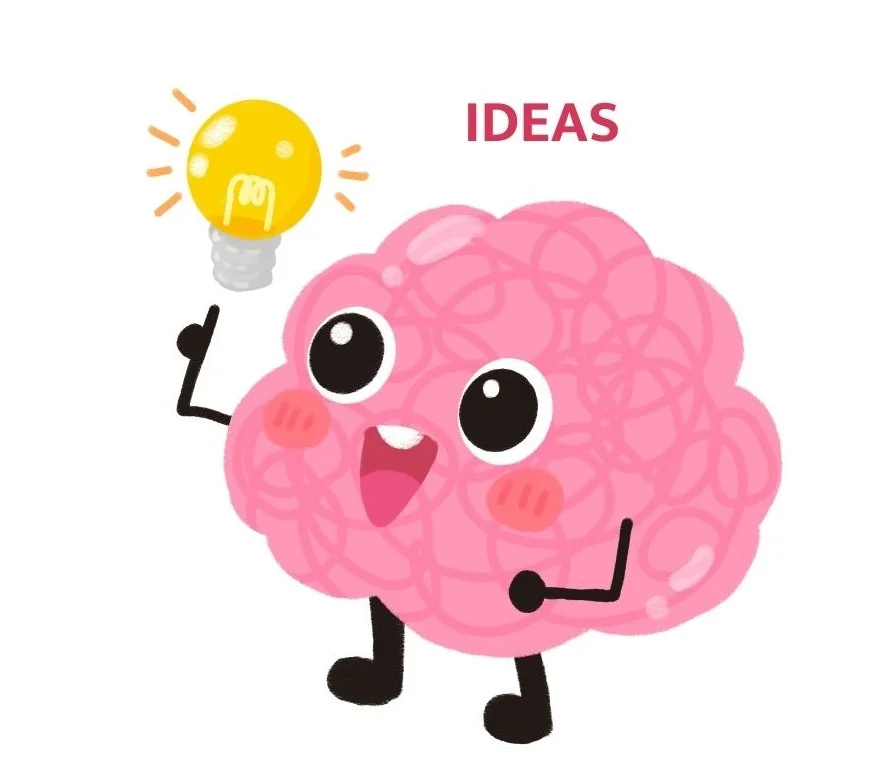
Ideas are like thoughts or pictures in our minds.
They’re things we imagine or think about.
We create ideas by using our imagination, creativity, and thinking skills.
Ideas can be like small thoughts or plans that help us figure out how to do things.
When we have an idea, it’s like a spark of inspiration that helps us find solutions or explore new ways of doing tasks or facing challenges.
Ideas are like seeds that grow into new possibilities and help us achieve our goals.
Remedies: Chin., Coff., Lach., Phos.
IDIOCY
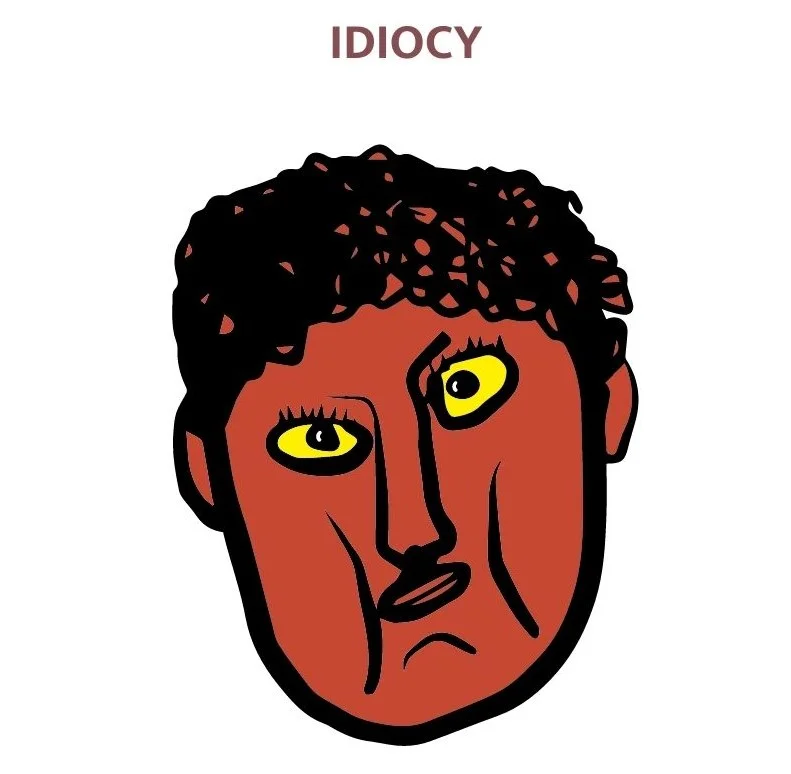
Idiocy is a word that describes extreme lack of intelligence or common sense.
It refers to someone who consistently makes foolish or silly decisions and lacks basic understanding or reasoning abilities.
It’s like being very unintelligent or not thinking things through properly.
Idiocy is often associated with making mistakes or doing things that others consider foolish or ridiculous.
It’s important to remember that everyone makes mistakes sometimes, but idiocy refers to a persistent lack of intelligence or judgment.
Remedies: Aeth., Bar-c., Calc-p., Phos.
IMBECILITY

This is a mental state of being extremely foolish and having lack of intelligence.
This is a condition of intellectual weakness.
When a person consistently shows a lack of judgement, reason, or understanding, he is described as imbecile.
Signs and symptoms are:
- Deficiency of cognitive abilities.
- Poor decision-making ability.
- Difficulty in learning or understanding complex concepts.
Remedies: Aloe., Bell., Carb-v., Nux-v., Sulph.
IMPATIENCE/HURRY/IMPETUOUS
Read the detailed meaning of these three words with comparison here…
HURRY/HASTINESS/IMPETUOUS/IMPATIENCE
Remedies: Cham., Ign., Nux-v., Sep., Sulph.
IMPERTINENCE

Impertinence is a type of behaviour that involves being rude, showing no respect to others, lack of social manner, or impolite.
Remedies: Canth., Nit-ac.
IMPRUDENCE/INDISCRETION/CIRCUMSPECTION LACK OF
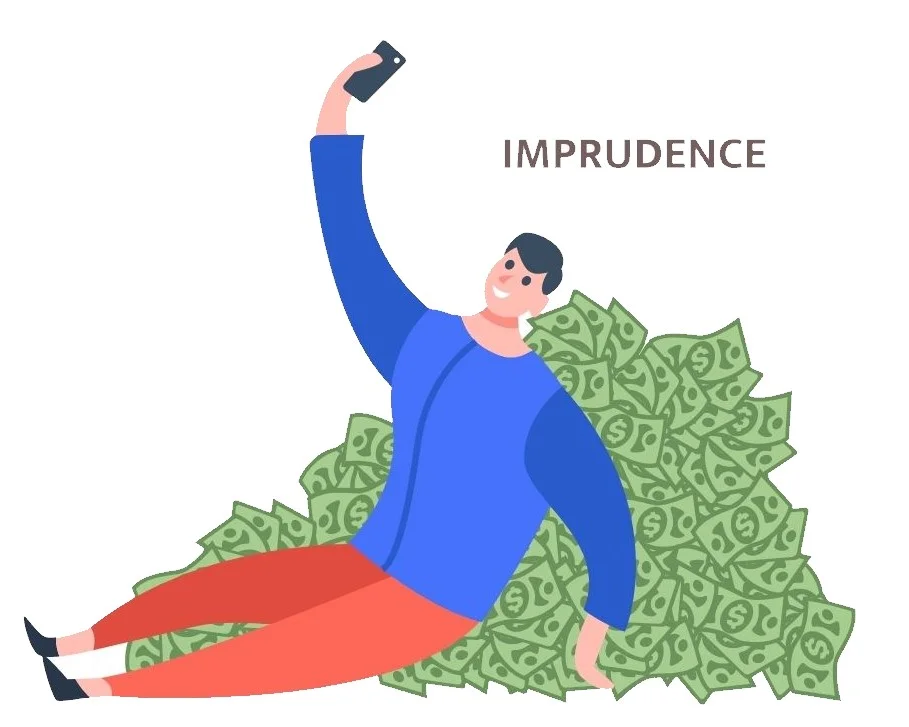
Imprudence
Imprudence means lack of caution or thoughtfulness in one’s actions.
It’s like doing something without considering the potential consequences or risks involved.
For example, if you hastily spend all your money on unnecessary items without thinking about your future financial needs, that can be considered imprudent.
Indiscretion
Indiscretion is related to a lack of judgment or discretion in what one says or reveals.
It’s similar to saying or sharing something without considering whether it’s appropriate or should be kept confidential.
For instance, if you blurt out a friend’s secret to others without their permission, that would be an example of indiscretion.
Circumspection
Circumspection, on the other hand, is the opposite of imprudence and indiscretion.
It involves being cautious, thoughtful, and considering the potential consequences before taking action or speaking.
It’s like carefully weighing the pros and cons or thinking ahead to avoid unnecessary risks or mistakes.
An example of circumspection would be taking your time to research and gather information before making an important decision.
To summarize:
- Imprudence: Acting without caution or thoughtfulness.
- Indiscretion: Lacking judgment in what is said or revealed.
- Circumspection: Being cautious and thoughtful before taking action or speaking.
Remedies: Nux-v., Acon., Puls.
IMPULSIVE
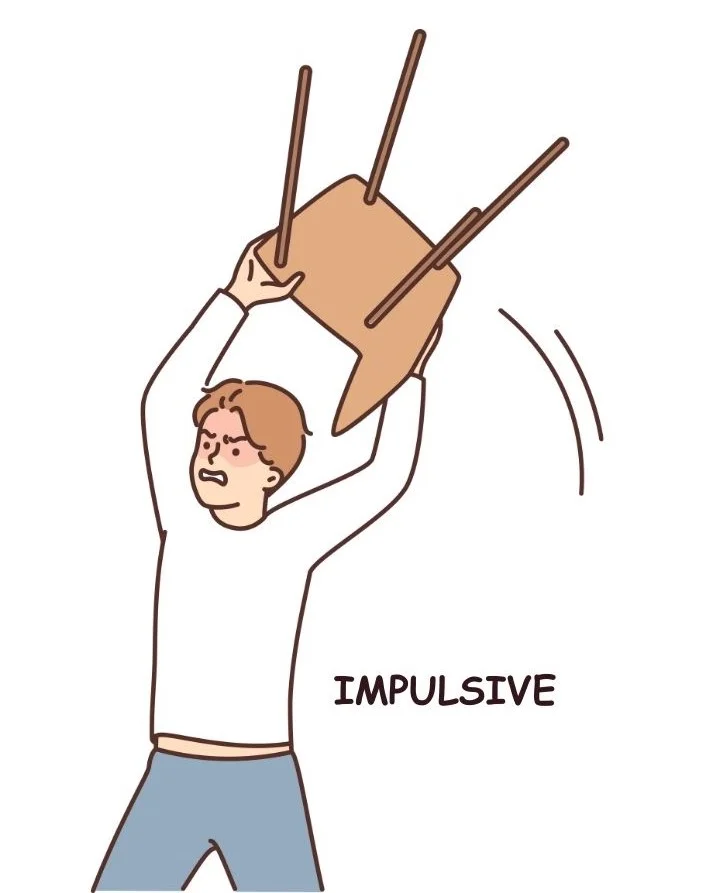
To behave without thinking or planning earlier on.
Impulsive person tends to act on his immediate desires or emotions mostly without considering the consequences.
Example:
- Purchasing costly items without considering the budget.
- Saying something hurtful without considering other person’s sentiments.
Being impulsive can sometimes cause regret or unwanted results.
Remedies: Arg-n., ars., aur., cic.
INCITING others

To “Insite others” means deliberately provoking or encouraging other individuals to engage to certain actions.
Mostly of a negative nature.
Aim of inciting others can be to influence or ignite a particular behaviour or response.
Inciting can involve persuasive language or making provocative statements.
Examples: spreading ides, stirring up emotions, cause excitement or aggression.
Reasons many be political, social or even personal.
Remedy: Hyos.
INCONSOLABLE
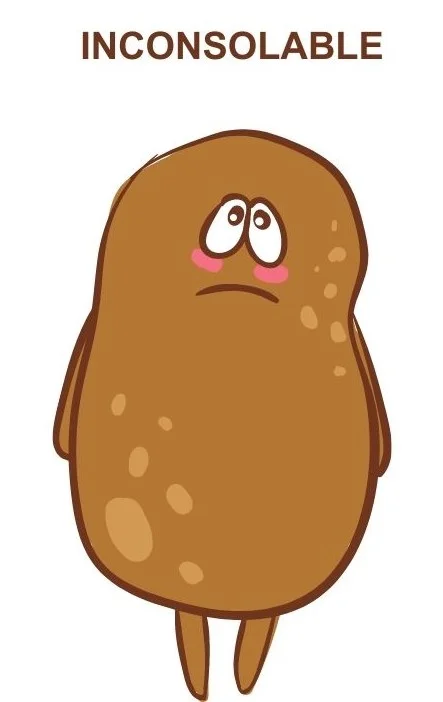
This is a state of deep and overwhelming grief that can not be comforted or relieved easily.
Person may feel extremely devastated by loss, disappointment or emotional pain.
Person feels a profound sense of grief or anguish that seems impossible to ease.
Even when others try to help by offering support or trying to make them feel better, person still feels really sad and can’t seem to find any comfort.
Inconsolable person may express their grief by extreme crying, despair or long-lasting emotional stress.
Remedies: Acon., Cham., Nat-m.
INDIFFERENCE/LISTLESS/JOYLESS/PHLEGMATIC
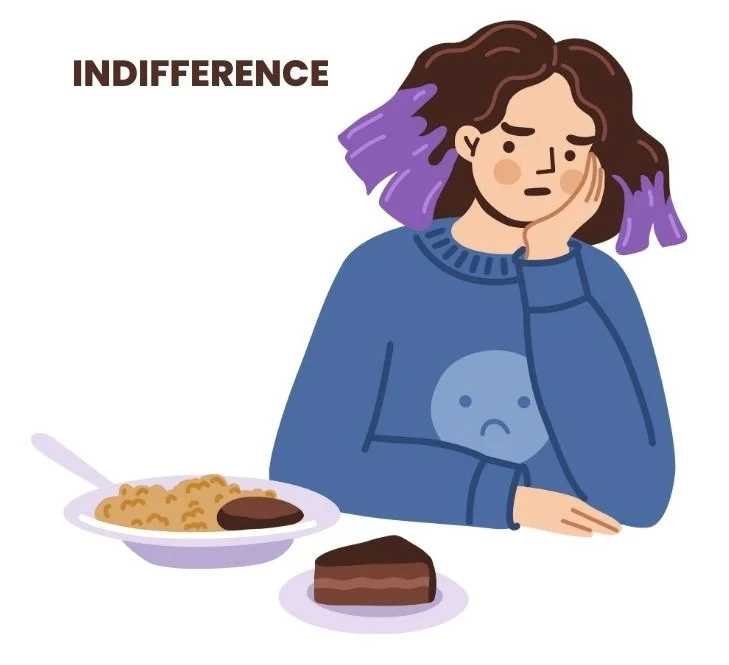
Indifference: Indifferent means the person don’t really care or have strong feelings about something. He might feel neutral or apathetic, not showing much interest or concern.
Listless: Listless means lack energy or enthusiasm. Person may feel tired, unmotivated, or have a general lack of interest in things.
Joyless: Joyless means the person lacks happiness or enjoyment. It can refer to a situation or an experience that doesn’t bring any pleasure or delight.
Phlegmatic: Phlegmatic people are calm, unemotional, and not easily excited or bothered by things. They tend to have a composed and steady disposition.
Read Temperaments in homoeopathy in very easily understandable way here.
Read SADNESS/LOW-SPIRITED/DEJECTION/GLOOMY/DESPONDENCY/HOPELESS by following the link.
Remedies: Apis., Carb-v., Chin., Onos.
INDIGNATION

This is a feeling of deep anger and unhappiness.
This happens when a person feels hurt, treated unfair or observes something bad happening.
When someone’s moral values are damaged, he feels unfair.
The indignant person becomes really passionate and frustrated, ends up having strong desire for justice and fairness.
Sense of indignation can be caused by cruel act, unfairness, lying or anything that goes in oppose to what someone believes is right.
This motivates a person (a group of people) to stand up for their rights or beliefs for justice and work towards making the world a better place.
Remedies: Calc-p., Staph.
INDOLENCE

Indolence means having a strong tendency or habit of avoiding work or putting in effort.
It refers to a state of being uninterested or unwilling to take action or engage in productive activities.
Indolence is often linked with laziness, procrastination, and a lack of motivation.
It signifies a persistent avoidance of tasks that require effort or responsibility.
It is different from taking rest or relaxation, as it involves a prolonged pattern of avoiding necessary actions or work.
Indolence can hinder progress and achievement, as it reflects a reluctance to apply oneself and fulfil obligations.
Remedies: Carb-s., Graph., Lach., Sulph.
INQUISITIVE
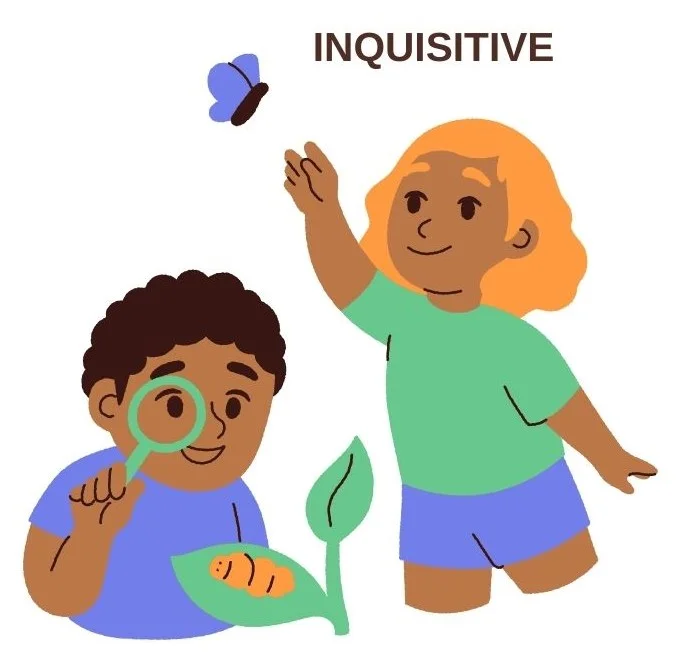
An inquisitive person is naturally curious and has a strong desire to learn and understand.
They love exploring and asking questions about various subjects.
Engaging in conversations and discussions is exciting for them as it helps them gain new insights and expand their knowledge.
Inquisitive individuals have a sense of wonder and keep an open mind, always seeking fresh perspectives and information.
They derive joy from discovering and delving into ideas, and their curiosity often leads to a deeper comprehension of the world.
Being inquisitive is a valuable quality that nurtures intellectual growth and encourages a lifelong quest for knowledge.
Remedies: Agar., Lach.
INSANITY/CRAZY/MADNESS

Insanity: Insanity is a serious mental illness in which the person’s thoughts, emotions, and behaviour are greatly affected.
It’s like being trapped in a twisted version of reality, making it hard to function normally.
Crazy: “Crazy” is a more casual term used to describe something or someone as very strange or unpredictable. It’s like when things or people seem unusual or out of the ordinary, causing surprise or disbelief.
Madness: Madness refers to a state of extreme irrationality or chaotic behaviour. It’s like when someone’s thoughts and actions become disordered, making them act in strange or unpredictable ways.
In summary, insanity is a severe mental illness, crazy describes something or someone as strange or surprising, and madness is a state of extreme irrationality or chaotic behaviour.
Remedies: Ars., Bell., Merc., Tarent.
INSOLENT/RUDENESS
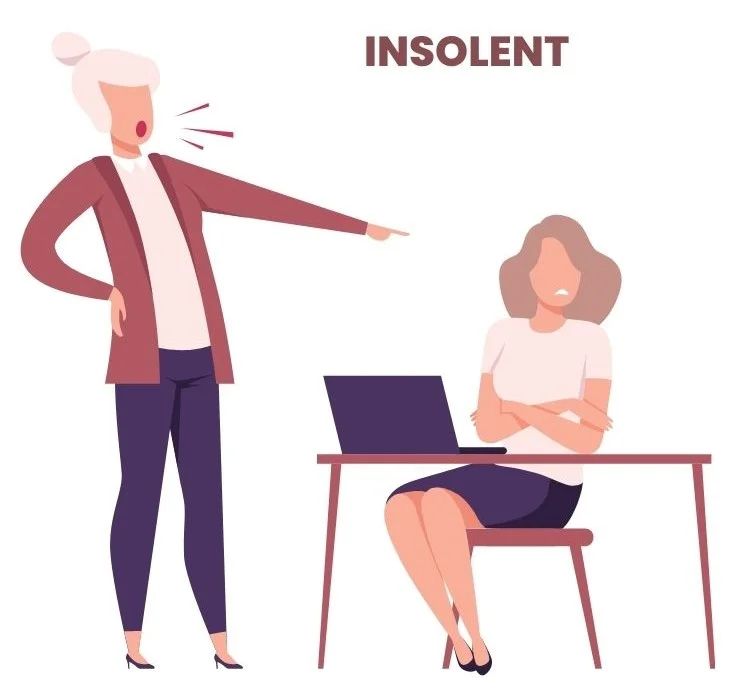
These two words describe different types of disrespectful behaviour.
Insolent indicates to someone who shows a lack of respect and acts arrogantly towards others.
They might use rude or insulting language, ignore rules or authority figures, and ignore other people’s feelings or opinions.
Rudeness is a generally used term for behaviour that is ill-mannered or disrespectful.
It may include actions like being mean, speaking inappropriately, or ignoring common courtesy.
Rudeness can be displayed in various ways, such as interrupting others, not saying “please” or “thank you,” or being impolite in social interactions.
In simpler words, Insolence is specifically about showing disrespect with arrogance, while rudeness covers a wider range of impolite actions or words.
Remedies: Lyc., Plat., Verat.
INTROSPECTION
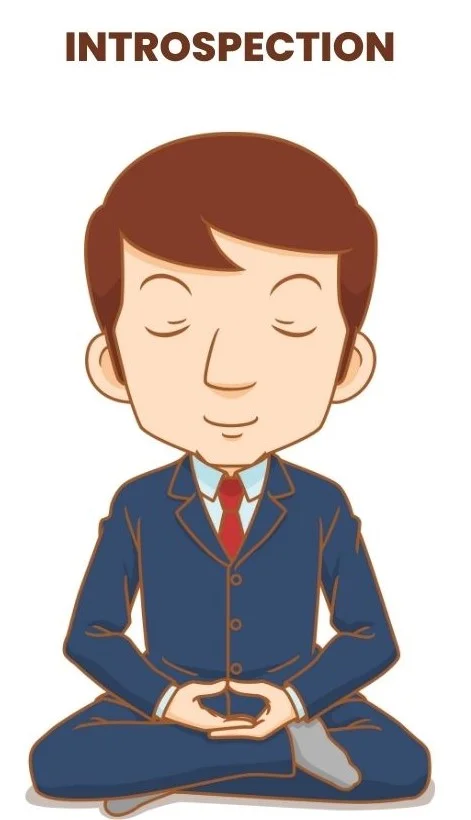
Introspection means looking inside and examine our own thoughts, feelings, and experiences.
It’s like taking a pause and reflect on what is happening inside our own mind and heart.
By introspection we can try to understand ourselves better by observing our thoughts, emotions, and motivations.
This is the way we can explore and discover more about who we are.
It’s a bit like having a conversation with ourselves to gain insights about ourselves and how we see the world around us.
Remedies: Cocc., Ign., Puls.
IRRESOLUTION/FICKLE/INCONSTANT/CAPRICIOUSNESS

These are four different words that describe various aspects of indecisiveness or inconsistency.
Irresolution refers to a mental state of indecisiveness, where a person struggles to make a firm decision or take a clear course of action.
It involves a lack of determination or the tendency to waver between different choices.
Fickle suggests someone who frequently changes their opinions, loyalties, or preferences without any strong reason or commitment.
It implies a lack of consistency and stability in decision-making or sticking to one choice for long.
Inconstant refers to a person or thing that frequently changes or fluctuates.
It suggests a lack of reliability or predictability, where something or someone may vary or shift in behaviour, emotions, or commitment.
Capriciousness suggests a tendency to make sudden and unpredictable changes in thought, mood, or behaviour.
It implies being impulsive and whimsical, often without a rational or logical basis for the changes made.
In simple words, irresolution is being unsure and having difficulty making decisions, fickle is changing opinions or preferences frequently, inconstant is lacking consistency or stability, and capriciousness is making sudden and unpredictable changes without a clear reason.
Remedies: Bar-c., Hell., Ign., Lach., Onos., Op.
IRRITABILITY/ANGER/PETULANT

Irritability means getting easily annoyed or bothered by small things. It’s like having a short fuse, where even tiny issues can make us feel frustrated or upset.
Anger is a stronger feeling than irritability. It’s when we feel really mad or furious towards someone or something. Anger often happens when we think something is unfair or when someone crosses a line. It can make us want to yell or act aggressively.
Petulant is a way of behaving when we’re sulky or easily annoyed, especially over little things. It’s like being in a bad mood and acting grumpy or throwing a tantrum. When we’re petulant, people might think we’re acting immature or like a child.
So, irritability is getting easily annoyed, anger is feeling really mad, and being petulant is behaving in a sulky or easily irritated way, often over small things.
Remedies: Acon., Bell., Cham., Lyc., Nux-v., Verat-v.
